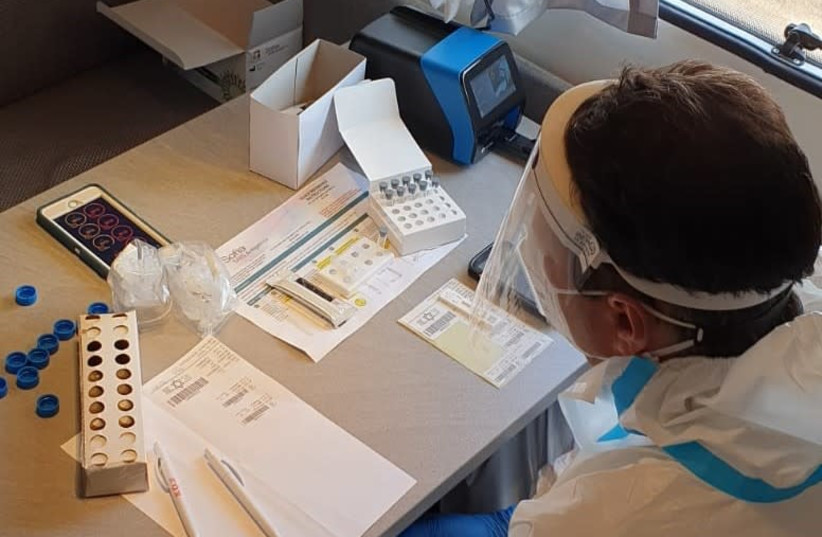“This goes against the most basic of medicals tenets – do no harm,” said one of the hospital directors.

Clalit hospitals will stop using the Sofia rapid coronavirus testing kits, suspecting tens of false positives, N12 reported Thursday night.
What this means for those who tested positive but didn’t actually have COVID-19, is that they ended up in the various hospitals’ coronavirus wards, exposed to actual patients.
So far, the Meir Medical Center in Kfar Saba has completely terminated their use of the testing kits, with Soroka-University Medical Center in Beersheba close behind. Schneider Children’s Medical Center for Israel in Petah Tikva and the Carmel Medical Center in Haifa have both not yet even begun using them.
“The thought that tens of Israelis mistakenly tested positive and sent to coronavirus wards in hospitals, effectively ensuring their ultimate exposure and infection – that thought is chilling and horrifying,” said a director of one of the hospitals that is working to discontinue their use of the kits.
Sofia’s pioneering technology is what sets it apart: test results in 15 minutes. The kits have been approved by the FDA and the Health Ministry.
“This goes against the most basic of medicals tenets – do no harm,” the hospital director added.
“Sofia is an important technological development that was already approved by the FDA and the Health Ministry,” stated Sofia Israel.
“Globally, the reaction to the intelligent software that provides results instantaneously has been overall positive. Only in Israel are there forces that are having a hard time incorporating new technologies,” the company noted.
Israel received a shipment of 70 new Sofia testing kits earlier this month, as part of a plan for Israel to secure 300 of them from the San Diego-based company Quidel.
Sofia Israel has a logistical center in Modi’in Ilit, where the shipment was sent to be distributed to various institutions throughout the country, including medical clinics and health funds.
Already in October, when the kits were brought to Israel, health professionals expressed their concerns over the accuracy of the tests.
While Sofia reported a 96.7% success rate, a lab workers association had it at about 84%.
“Hospitals that aren’t interested in the technology are welcome to pass it on to old age homes. They need it,” concluded Sofia Israel.
As reported by The Jerusalem Post
